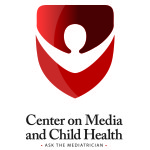Someone from my high school committed suicide last week. I didn’t know her very well, but we were Facebook friends. Her posts were always so upbeat and happy, and I had no idea she was even depressed. What did I miss?
 You may not have missed anything—it can be hard to truly “know” someone, especially when the only access you have to them is through social media, like Facebook. Because social media is more public than direct one-on-one communication, it is often a space where people are more likely to post their best photos and “best selves”—what they want to be, how they want to look and what they want to do. Given that, your classmate’s cheerful, upbeat photos and posts, may have been what she hoped to be but was tragically not what she was really truly feeling.
You may not have missed anything—it can be hard to truly “know” someone, especially when the only access you have to them is through social media, like Facebook. Because social media is more public than direct one-on-one communication, it is often a space where people are more likely to post their best photos and “best selves”—what they want to be, how they want to look and what they want to do. Given that, your classmate’s cheerful, upbeat photos and posts, may have been what she hoped to be but was tragically not what she was really truly feeling.
Remember, social media typically lets us broadcast more about ourselves, than help us communicate with each other. Creating and keeping close, meaningful friendships takes time, effort, and often, shared experiences that you have in real life. Social media can help maintain the friendships you already have, but it can’t be a substitute for true friendship.
If you do see a friend posting something sad or concerning on social media, be sure to talk to a trusted adult (such as a parent, teacher, guidance counselor, etc.) right away or contact one or more of the following organizations or visit:
- National Suicide Prevention Lifeline: 1-800-273-TALK (1-800-273-8255) or use their 24/7 online chat
- Samaritans: 1-877-870-HOPE (1-877-870-4673) or use their online chat
- The Trevor Project: 1-866-488-7386 or use TrevorChat or TrevorText
- Facebook’s Suicide Prevention page and Facebook’s Help a Friend in Need tip sheet
- YMH’s Health Guide for Suicide Prevention
- Mind Your Mind: My Friend is in Crisis
If you have other questions about media and tech, Ask the Mediatrician
Source: Read Full Article


